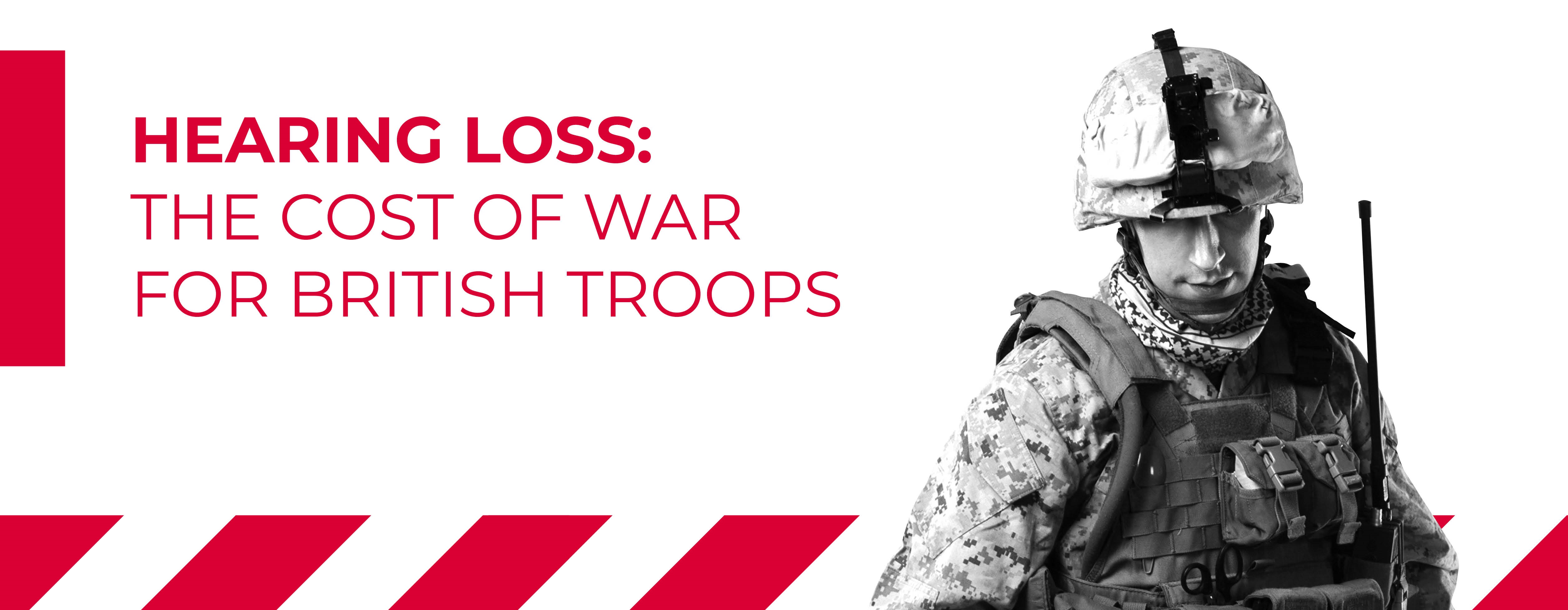The thought of a warzone injury typically conjures up images of severed arms and legs – perhaps even trench foot and PTSD may spring to mind – but hearing loss is often forgotten. This is because many people are not aware of the permanent damage caused to a soldier’s hearing during their service. It is this injury that many soldiers believe to be among their worst.
Hearing loss, tinnitus and hyperacusis
During their service, military personnel are exposed to a variety of extremely loud noises guaranteed to damage their hearing. The use of machine guns, artillery and explosives are even used during training exercises where the hearing damage begins.
To put this into perspective, research states that any noise greater than 85dB (decibels) can lead to hearing damage. The crack of a standard M16A2 rifle is 152dB, nearly twice what is needed to inflict slow but permanent damage to your ears.
Hearing loss is the one injury that affects more military personnel than any other. Alongside this, soldiers also experience tinnitus (a ringing in the ears) and hyperacusis (a heightened sensitivity to everyday sounds) as a result of over exposure to loud noises. At first, the damage may be minor, but as troops are deployed more and more, even standard solutions like hearing aids or surgery may not provide complete relief from their symptoms.
In the past, soldiers would often find their issued earplugs would fall out or get lost and instead would have to make do with cotton wool or a couple of ‘tab ends’. Today, soldiers are offered ear defenders and moulded earplugs to defend their ears. However, this can prevent them from hearing crucial commands or any immediate dangers nearby.
Grounds for making a claim
If it can be proven there was a breach by the Ministry of Defence in its duty of care, all of these conditions can be grounds for making a claim. Philip Goodman was a soldier firing rounds at targets in 2011 ahead of deployment to Afghanistan when his left earplug fell out. As a result, his ear was exposed to deafening noises from surrounding shots, leaving him with tinnitus and hearing loss, as well as the need to wear a hearing aid permanently.
Goodman’s story is just one of many similar cases. Among the physical effects of hearing loss, tinnitus and hyperacusis, are also the emotional effects. As conversations are missed, soldiers find they start to feel isolated. Meeting new people becomes extremely difficult and making small talk almost impossible. Loud environments will only make their tinnitus and hyperacusis worse, which is why many sufferers become withdrawn. Again, this only adds to the issue as they become fearful and anxious of sound. This hypersensitivity to everyday sounds leads to some individuals developing phonophobia (an unwarranted fear of sound).
NIHL Testing
At MLA, we know that no two cases are the same, which is why we offer a variety of tests to identify Noise Induced Hearing Loss. These include audiology screening, ENT reports and CERA testing.
Having produced over 40,000 NIHL (Noise Induced Hearing Loss) medical reports, we place ourselves at the forefront of the industry and pride ourselves on driving innovation and efficiencies throughout our service delivery.
We will advise you on the most appropriate pathway for your client, allowing you to minimise cost wastage on unsuccessful cases and benefit from an efficiently produced, quality report every time.
To find out more about our range of NIHL screenings, speak to our dedicated team today.

